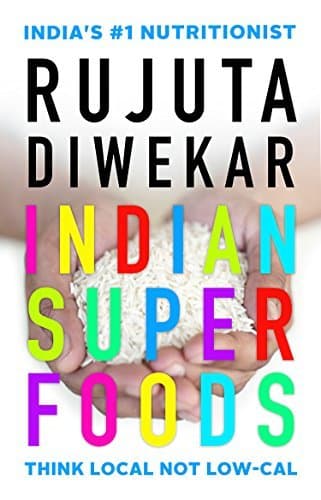
Book Review Summary: Indian Superfoods
Introduction
"Indian Superfoods" by Rujuta Diwekar is a thought-provoking book that challenges conventional wisdom about food habits and nutrition. In this article, we will explore the author's perspective, analyze the views of readers, and summarize the reasons for recommending and not recommending this book.
About Rujuta Diwekar
Rujuta Diwekar is a renowned sports science and nutrition expert in India. With her extensive knowledge and experience, she has helped countless individuals develop healthy eating habits that align with their lifestyle. Her books and films have been immensely popular, and "Indian Superfoods" is another addition to her successful body of work.
Analysis of Views
-
Challenging Conventional Wisdom: Readers appreciate how Rujuta Diwekar challenges conventional beliefs about food habits, nutrition, and weight management. The book encourages readers to question what they have been taught and explore alternative perspectives.
-
Interdisciplinary Approach: Many readers find the book's interdisciplinary approach to nutrition and health refreshing. Rujuta Diwekar incorporates insights from various fields, including agriculture, economics, and politics, to provide a comprehensive understanding of food habits.
-
Ancient Wisdom Meets Modern Science: Readers appreciate how the book combines ancient wisdom from traditional Indian foods with modern scientific research. This approach allows readers to appreciate the benefits of local foods and incorporate them into their diets.
-
Practical Recommendations: The book offers practical advice on incorporating superfoods into daily meals. Readers find the suggestions easy to implement and appreciate the focus on realistic and sustainable dietary changes.
-
Empowering Readers: The book empowers readers by encouraging them to question authority and rely on their own common sense when it comes to food choices. Readers feel that Rujuta Diwekar's voice resonates with their own experiences and provides valuable insights into Indian food habits.
Reasons for Recommendation
-
Challenges Conventional Wisdom: The book challenges conventional beliefs about food habits and nutrition, encouraging readers to think critically about what they eat. This approach can lead to a more informed and empowering relationship with food.
-
Interdisciplinary Approach: The interdisciplinary approach used in the book provides readers with a comprehensive understanding of food habits, incorporating insights from various fields such as agriculture, economics, and politics. This holistic perspective adds depth to the discussion of nutrition and health.
-
Practical Recommendations: The book offers practical advice on incorporating superfoods into daily meals, making it easy for readers to implement the suggested changes in their diets. The focus on realistic and sustainable dietary modifications is appreciated by many readers.
Reasons for Not Recommendation
-
Limited Scientific Evidence: Some readers feel that the book relies too heavily on anecdotal evidence and personal opinions rather than providing sufficient scientific evidence to support its claims. They believe that more rigorous research would enhance the credibility of the book's recommendations.
-
Sarcasm and Hindi Lingo: A few readers find Rujuta Diwekar's writing style, which incorporates sarcasm and Hindi phrases, distracting or off-putting. They prefer books with a more formal or straightforward writing style.
Conclusion
"Indian Superfoods" by Rujuta Diwekar offers a thought-provoking exploration of food habits, nutrition, and weight management in India. By challenging conventional wisdom, incorporating interdisciplinary insights, and providing practical recommendations, the book resonates with readers who seek a deeper understanding of their relationship with food. While some readers may find the lack of scientific evidence or certain writing styles off-putting, the overall consensus is that "Indian Superfoods" offers valuable insights into Indian food habits and encourages readers to question what they have been taught about nutrition and health.